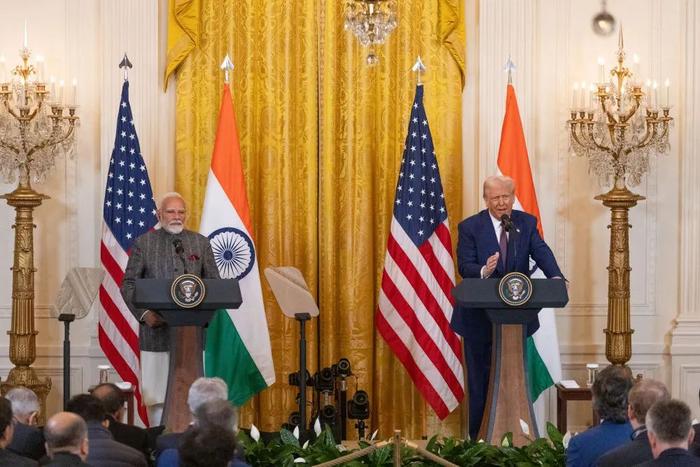
Xinhua News Agency, Beijing, July 5th – The deadline for India and the United States to negotiate trade has arrived, with both sides still having disagreements in sectors such as automobiles, steel, and agriculture. According to reports by Indian media on the 4th, India plans to impose retaliatory tariffs on certain American products. On the same day, Pious Ghoawar, the Minister of Commerce and Industry of India, made a strong statement that only mutual benefit can lead to an agreement.
The so-called “equal tariff” 90-day moratorium set by the US is set to end on July 9th, and India and the US are still in trade negotiations. According to Reuters, there are differences between India and the US in the fields of automobiles and parts, steel, and agricultural products. On one hand, India is reluctant to open its agricultural and dairy markets, while on the other hand, it demands that the tariff rates on Indian goods be lower than those imposed on Vietnam and other countries.
A delegation led by Ramesh Agrawal, the chief negotiator, concluded another round of trade negotiations with the US on the 4th. The Times of India quoted an Indian official saying that the Indian delegation had returned from Washington, and there were still issues to be resolved in the fields of agriculture and automobiles between the two sides.
Despite remaining divided, the officials mentioned that negotiations have entered their final stage, with an announcement expected before July 9th.
According to Today’s India report on the 5th, the US demanded that India open up its agricultural product market, especially accepting genetically modified corn, soybeans, and other agricultural products, but India refused on the grounds of “food security and impact on rural livelihoods.”
The Indian Express quoted an Indian official on the 5th saying that India’s core interest lies in ensuring continuous market access for labor-intensive products such as textiles and footwear, and exporting auto parts is also a concern. Moreover, the US is unwilling to make concessions in the steel sector to any country.
On February 13th, US President Donald Trump (right) attended a meeting with visiting Indian Prime Minister Modi at the White House in Washington. Photo by Hu Yousong, Xinhua News Agency.
Indian Minister: National Interests Take Precedence
According to Indian media on the 4th, India has informed the World Trade Organization about plans to impose retaliatory tariffs on some American products in response to the measures taken by the US to impose tariffs on automobiles and parts imported from India.
The report stated that India indicated in its notification that the US’s imposition of tariffs violated the rules of the World Trade Organization and had a significant impact on bilateral trade. India has suspended tariff reductions equivalent to those applied under the World Trade Organization rules and reserves the right to adjust the target list of products and tariff levels.
Pious Ghoawar, the Minister of Commerce and Industry of India, stated on the 4th that the trade agreement India is prepared to reach must meet its national interests, not just to reach an agreement before the deadline.
Ghoawar said, “Only when mutual benefit is achieved can a free trade agreement be reached. Remember, national interests always take precedence.”
Trump’s Tariff Policy Impacts Global Trade